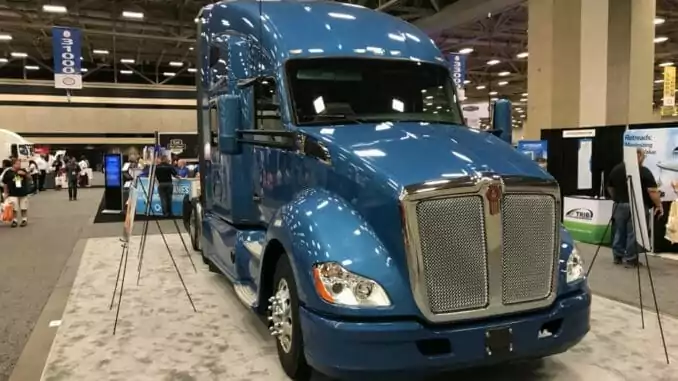
What Is a CDL?
A CDL is a Commercial Driver’s License and is a requirement to operate certain commercial motor vehicles. If you were the kid playing with toy trucks and now you want to make that into an real career, the CDL is what you need.

To drive any vehicle that falls in the following list, you need to get a Commercial Driver’s License and fit the CDL requirements:
- A gross combination weight rating (GCWR) of 26,001 lbs. or more, to include a towed vehicle that is heavier than 10,000 lbs. (tractor-trailers, flatbeds, and tankers)
- A single vehicle with a gross vehicle weight rating (GVWR) of 26,001 lbs. or heavier. Also, any vehicle with the above weight that is towing another vehicle weighing up to 10,000 lbs. (delivery box trucks, straight trucks, and large buses)
- At least 16 passengers (including you the driver) or a vehicle carrying hazardous material (HAZMAT) as laid out by federal guidelines
Endorsements
There are also vehicles that require special permission to drive. These permissions are called “endorsements,” and you get them by taking additional written tests.
These endorsements get added to your CDL. They let you drive a variety of specialty vehicles, such as tankers, triple trailers, and even school buses.
If you have a specific driving job that you’ve been dreaming about, take the time to research which license and endorsements you need.
What Are the CDL Requirements?
Before you can take a test and get your Commercial Driver’s License, you must first make sure you fit all of the prerequisites.

Truck driving is subject to tons of regulation to keep the roads safe for both truckers and the four-wheelers that share the pavement.
These CDL requirements may seem like a pain, but an 80,000 pound truck can pose a lot of danger if it’s not handled correctly.
Some regulations vary by state, but there are basic CDL requirements mandated by the federal government.
Drivers must also have no disqualifying felonies. The DMV also checks your driving record, back at least 10 years.
Most schools and companies also want at least one full year of clean driving with a regular license, so you probably won’t be able to get a CDL if you don’t currently have a driver’s license.
As a truck driver, you need to have a firm grasp of English, both written and spoken. It’s essential that you can read road signs and communicate with the general public. There aren’t federal requirements for education level, but most companies want a high school diploma or equivalent before they hire you.
Medical Requirements
You also need to be medically qualified according to the Department of Transportation. This includes:
- Vision: You must have at least 20/40 vision and able to see color.
- Hearing: You must be able to hear a forced whisper from at least five feet away, or take an audiometric test which shows no hearing loss greater than 40 decibels at 500 Hz, 1,000 Hz, and 2,000 Hz. Hearing aids are allowed, but you will be required to wear them at all times while driving.
- Blood Pressure: The maximum allowable blood pressure is 160/100. It’s acceptable to use medication to lower your blood pressure.
- Diabetes: Diabetics are not permitted to drive trucks if you need insulin injections. You can be allowed if your illness is controlled through diet and/or medication. Maximum blood sugar is 200.
- Cardiovascular issues: Drivers must submit to a stress test and provide a doctor’s note that you can drive a commercial motor vehicle with no restrictions.
Once you pass the DOT physical, you’ll need to carry the medical certificate/physical card with you. Your DOT medical card is valid for two years if you pass all of the standards.
Citizen and Residency
Lastly, effective as of May 10, 2017, you need to provide proof of U.S. citizenship/lawful permanent residency/legal presence or proof of residency (domicile).
This requirement affects CDL holders renewing, upgrading, or transferring their CDLs.
Entry-Level Driver Training
As of February 7, 2022, new truck drivers without a CDL (or those upgrading to a new Class of CDL or receiving new endorsements), are required to get Entry-Level Driver Training.
Aspiring truck drivers can find a list of official training resources from the Training Provider Registry.
CDL Disqualientrfications
There are a few factors that can disqualify you from getting your CDL or prohibit you from using your CDL for at least one year (first offense), if you already have it.
- Driving a commercial motor vehicle with a BAC of .04 or over. If you have a BAC over zero but under .04, you can’t drive for 24 hours.
- Driving a commercial motor vehicle OR your personal vehicle under the influence of alcohol or a controlled substance.
- Refusing breath or blood alcohol testing in your commercial motor vehicle OR personal vehicle.
- Leaving the scene of an accident.
- Committing a felony involving the use of a motor vehicle
- Driving a commercial motor vehicle with a suspended, revoked, cancelled, or disqualified license.
- Causing a fatality through negligence while operating a commercial motor vehicle.
- Driving a commercial motor vehicle while in possession of a controlled substance.
Basically, don’t do any of this stuff. A second offense can cause you to lose your CDL for life. You could also lose your CDL if you use a commercial motor vehicle to commit a felony.
If you have a felony conviction, you may still be able to become a truck driver. Not all companies hire felons, but many do. It often depends on the type of conviction, length of time since the felony, etc.
There are even more serious consequences if you are driving a commercial motor vehicle with hazardous materials. Truck driving is a challenging and demanding job so be safe, be responsible, and be smart.
Next Steps
Those who meet the above CDL requirements will allowed to drive a truck for a living. (NOTE: If you’re unsure that you fit the medical requirements, skip ahead to Chapter 5 in order to take your DOT Physical!)
You should read through the above lists and make sure you’re fit and ready to get your CDL. After that, the next step is to decide which CDL classification you need to get the truck driving job of your choice.
Read on to the next section to learn about the three different classes of CDL. We also offer our own recommendation for which CDL class will help you most in your career. You can probably take a guess.
